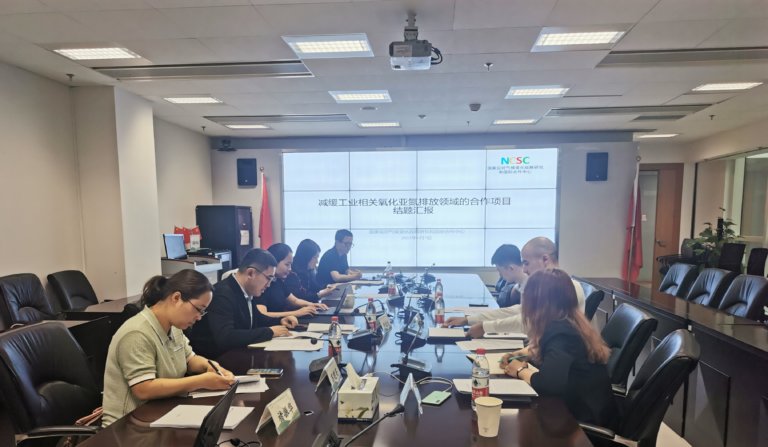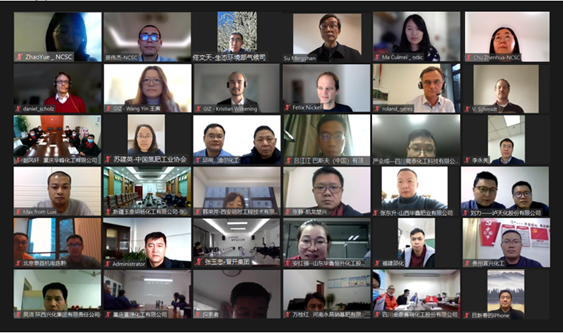July 16, 2018 – From 12 to 13 July 2018, around 30 representatives of provincial authorities and supporting agencies came together in the northern Chinese city of Harbin, the capital of Heilongjiang province. But while most people visit the city in winter for the famous annual ice festival, the reason for their visit was an entirely different one: This year’s third session of advanced ETS trainings. German and Chinese experts gave a number of interesting speeches and presentations on emission trading, covering a range of relevant topics for ETS construction, including monitoring, reporting and verification (MRV), allocation and general ETS design issues. The workshop was part of a series of trainings organized by GIZ on behalf of the German Federal Ministry of the Environment, Nature Conservation and Nuclear Safety in cooperation with the Chinese National Center for Climate Change Strategy and International Cooperation (NCSC). In order to offer capacity building for all Chinese provinces, the different advanced training sessions are targeted at different regions within China. After earlier trainings were held in the South of China, the training in Harbin was organized for representatives working on ETS development for authorities of provinces from Northeast China, covering Heilongjiang, Liaoning, Jilin, Inner Mongolia, and the cities of Tianjin and Dalian. Opening remarks by Mr. MA Aimin, the Deputy Director of NCSC , were followed by further remarks by Mr. Kristian Wilkening, Project Director of GIZ. Mr. YU Shengmin from NCSC then jumped right into the technical details of Chinese ETS development by presenting and interpreting the “Work Plan on the Construction of China’s National ETS (Power Sector)”. Afterwards, Mr. WANG Feng of CQC followed up with his interpretation of the “Guidelines on MRV and Historical Emissions Reporting 2016-2017”. It was easy to tell from the amount of attention he received that this topic was highly relevant for the provinces, especially since they are responsible for MRV and data reporting.
In the afternoon, the focus was shifted to the other end of the Eurasian landmass as Mr. Daniel Scholz, an experienced consultant from FutureCamp, shared experiences made in the European Union. He led the participants through several presentations, introducing not only the EU ETS, but also the most important and useful lessons learned regarding different aspects of ETS construction as well as private sector experiences with the ETS in the European Union.
Switching back to China, the second afternoon presentation held by Dr. ZHOU Sheng of Tsinghua University dealt with another central topic of ETS construction: allowance allocation. Dr. ZHOU was able to allow participants a deep understanding on how allocation rules are being drafted. The second day was mostly reserved for more interactive work. In order to allow the non-pilot provinces insights in the experiences of Chinese pilot ETS, the day started with presentations about lessons learned in the pilot ETS provinces in China. Subsequently, participants were divided into several groups and discussed the most pressing challenges they are facing in their daily work regarding ETS construction. These challenges and questions related to them were then presented and a lively and open discussion emerged.
The last part of the training was run by the China Beijing Environmental Exchange, which organized an ETS simulation game. This game allowed participants a deeper understanding of emissions trading in practice in a very fun and interactive way. It therefore made for an excellent final point of a very successful training, which offered everything from high-level guests to interesting presentations and fun group activities. And when the participants finally received their certificates, the content smile on their faces made one thing clear: In the end nobody had really missed the ice festival.



